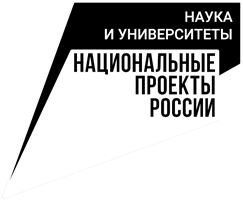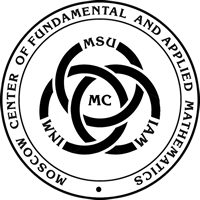PROGRAM
11:00 (GMT+3)
| Armen Sergeev | Steklov Mathematical Institute, Moscow |
|
Bio: Prof. Armen Glebovich Sergeev is a leading scientific researcher of the department of complex analysis in Steklov Mathematical Institute and a professor in Mechanical and Mathematical department of Moscow State University. He Got Ph. D in Moscow State University in 1975 and Doctor of Sciences in Steklov Mathematical Institute at Moscow in 1989. He is a foreign member of Armenian Academy of Sciences, member of the board of Moscow Mathematical Society and a member of Executive Committee of European Mathematical Society. He is the Chief-editor of many mathematical journals and published 106 papers and is the author of 10 books. His Principal fields of research include Pseudoconvex polyhedral, Invariant domains of holomorphy, Geometric quantization, Twistor quantization, Seiberg-Witten equations, Pseudoholomorphic curves and Vortex equations. He has been the scientific advisors of many doctors. Together with Prof. Xiangyu Zhou, they have organized a series of Sino-Russia Joint mathematical conferences for many years which has promoted greatly the mathematical cooperation between two countries. |
|
Mathematical problems in the theory of topological insulators.
The talk is devoted to the theory of topological insulators - a new and actively developing direction in solid state physics. To find a new topological object one have to look for the appropiate topological invariants and systems for which these invariants are non-trivial. The topological insulators are characterized by having wide energy gap stable for small deformations. A nice example is given by the quantum Hall spin insulator. It is a two-dimensional insulator invariant under the time reversal. It is characterized by the non-trivial topological Z_2-invariant introduced by Kane and Mele.
In our talk we consider the topological insulators invariant under time reversal. In the first part we present the physical basics of their theory while the second part deals with the mathematical aspects. These aspects are closely related to K-theory and non-commutative geometry.
12:00 (GMT+3)
| Qi'an Guan | School of Mathematical Sciences of Peking University |
|
Bio: Qi'an Guan graduated from the Institute of mathematics and systems science, Chinese Academy of Sciences in 2011 as a Ph.D, and his advisor is Professor Xiangyu Zhou. After graduation, he worked as a postdoctoral researcher in Beijing International Center for Mathematics Research for two years, and his co-advisor is Professor Xiaobo Liu. In 2013, he joined the School of Mathematical Sciences of Peking University and is now a professor. Qi'an Guan is mainly engaged in the study of several complex variables. Qi'an Guan has won the "outstanding postdoctoral Award" (2013) of Peking University, the "Young Teacher Award" (2016) of Huo Yingdong education foundation, and the "Chang Jiang Scholars Program - Young Scholars" (2016) and the "Science Research Famous Achievement Award in Higher Institution – Youth Science Award" (2017) of the Ministry of Education, the "Qiu Shi Outstanding Young Scholars Award " (2016), the " National Award for Youth in Science and Technology--Special Prize" (2019) of the Chinese Association for science and technology, “The Tan Kah Kee Young Scientist Award in Mathematics & Physics” (2020). Qi'an Guan was supported by the "Excellent Young Scientists Fund"(2015) and "National Science Fund for Distinguished Young Scholars" (2018) of the National Natural Science Foundation of China. |
|
Some recent applications of the strong openness property.
The multiplier ideal sheaf plays an important role in several complex variables, complex geometry and algebraic geometry. The strong openness property for multiplier ideal sheaves was conjectured by Demailly and proved by Guan-Zhou. In this talk, we will recall some recent applications of the strong openness property on the restriction formula and subadditivity property related to multiplier ideal sheaves. This is joint work with Professor Xiangyu Zhou.
The meeting will be held in the form of a webinar on the Zoom platform.
Pre-registration for the event is not required.
To join Zoom meeting(You can join in the meeting without a phone number):
https://zoom.com.cn/j/64623316558?pwd=ODJUSkpOekV0ZlR3RHpUN000ZW8zUT09
Meeting ID : 646 2331 6558
Passcode:574262
Instructions for installing and using the Zoom platform are available here:
https://support.zoom.us/hc/ru/articles/201362033-Начало-работы-на-ПК-и-Mac

